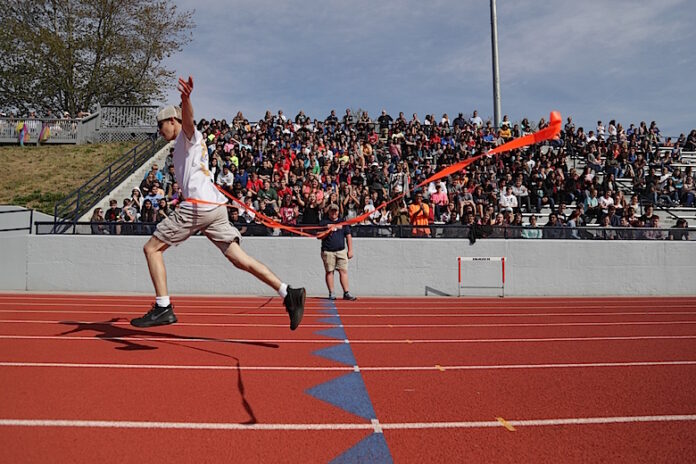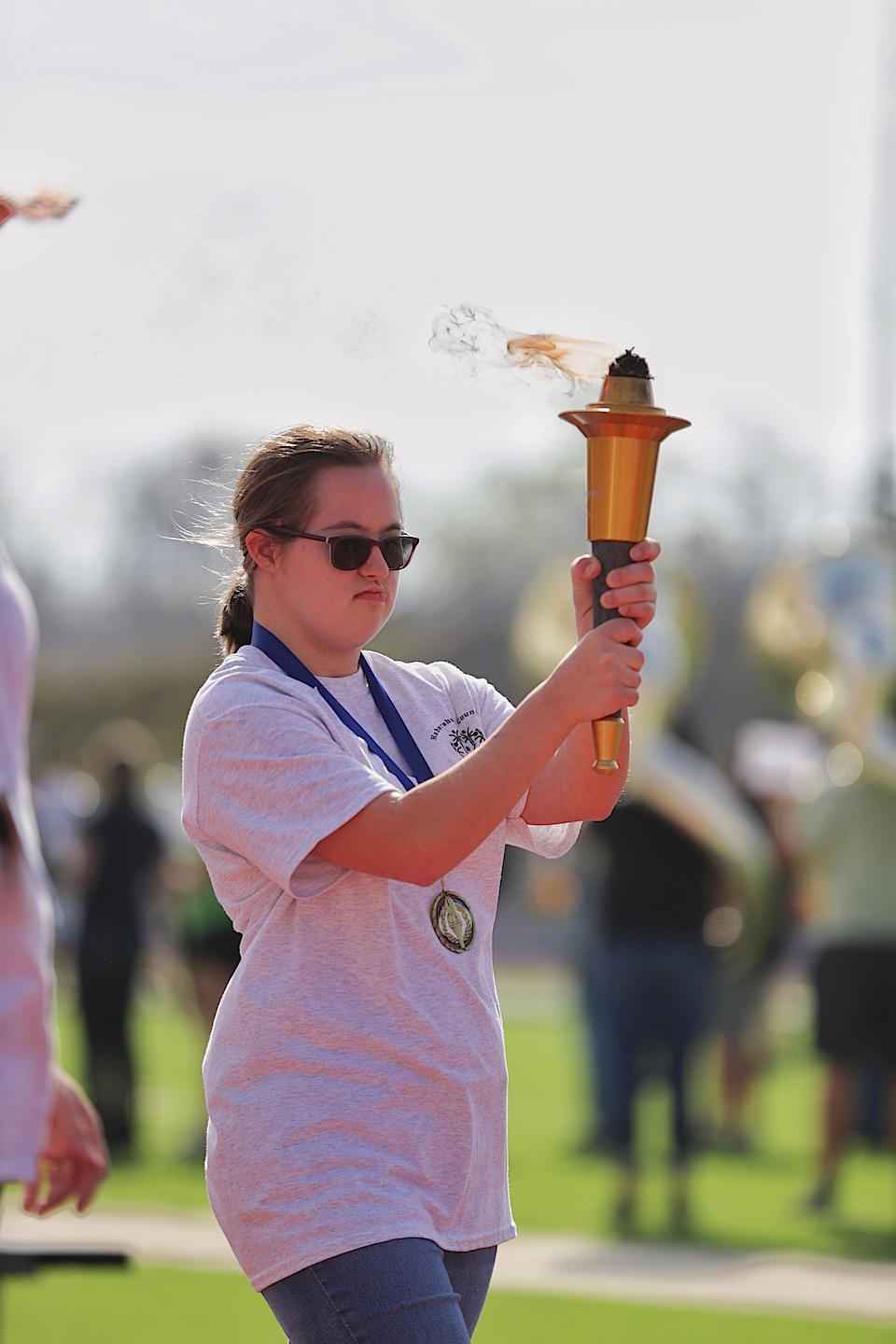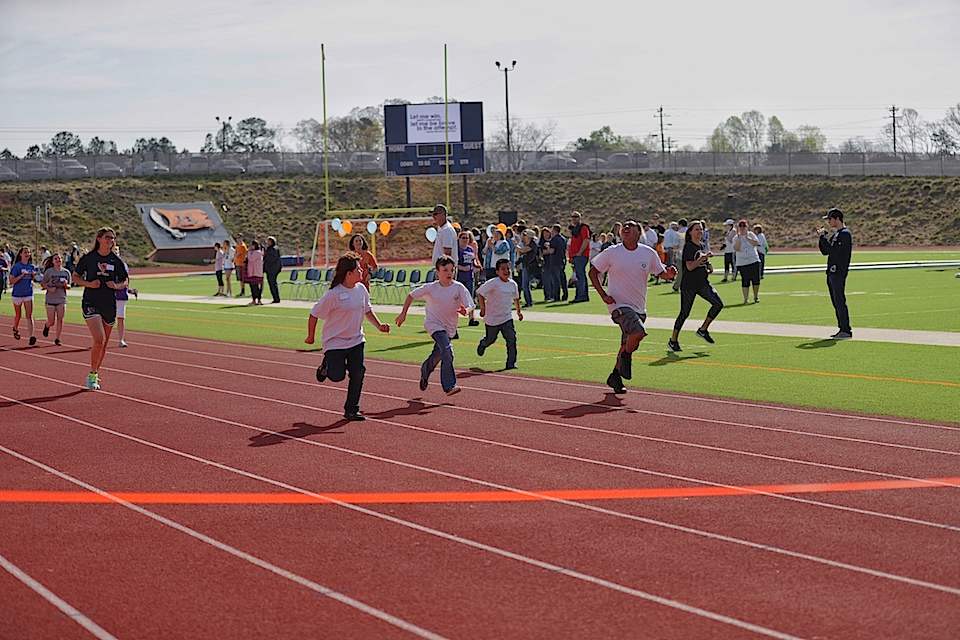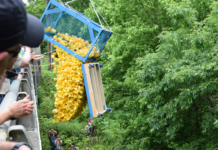
The Special Olympics is an international movement dedicated to empowering individuals with intellectual and physical disabilities through the transformative power of sports. Founded in 1968 by Eunice Kennedy Shriver, the Special Olympics has grown into a global platform providing year-round training and competition in various sports. The organization aims to create opportunities for people with intellectual and physical disabilities to develop physical fitness, demonstrate courage, experience joy, and share gifts, skills, and friendships.
LISTEN NOW We’re Talking with HabCo Special Olympics’ Kenzie Chitwood
Northeast Georgia

The Special Olympics will be held in Habersham County on Friday, April 4, at Raider Stadium in Mt. Airy, Georgia. Zach Hurley, a Special Education teacher at Habersham Central High School, looks forward to this event every year. “Being able to step back and watch my students ‘blossom’ is an incredible experience. The coming together of the community from students, volunteers, teachers, and administrators to make the day what it should be—fun for everyone is what it is all about.” Hurley is in his 19th year of teaching.
On April 11, the Stephens County Special Olympics starts with the Opening Ceremonies at 10 a.m. The Track and Field event will be held rain or shine at SCHS. “Hopefully, we will be on the football field. We will move inside to the gym if needed,” said Brandy Stacy, Director of Exceptional Children for the Stephens County School System. There are approximately 83 athletes this year. “I love this event because it allows our exceptional students an opportunity to compete and experience success athletically. The support from teachers, students, coaches, and community members make this day one of the year’s best days!” Stacy added.
Banks County will hold the event on April 4th at Banks County High School, and White County’s event will be on April 18th.
A Vision of Inclusion and Acceptance
At its core, the Special Olympics is about more than just competition. It is about fostering inclusion, acceptance, and respect for people with intellectual and physical disabilities. The movement advocates for equal treatment and opportunity, challenging stereotypes and breaking down barriers. The Special Olympics is built on the belief that everyone, regardless of ability, has the right to play sports and feel a sense of achievement.
The athletes who participate in the Special Olympics are individuals of all ages. The sports and events are designed to be accessible to people at varying skill levels, ensuring that every athlete has a chance to succeed and excel. Training and competitions occur in a supportive and encouraging environment that prioritizes sportsmanship, personal growth, and the joy of participation over solely competitive outcomes.
People of all ages participate. “Kindergarten through twelfth grade, as well as what we call ‘Master Olympians, ‘ are adults who have participated before and come together on the field to experience all different types of sports,” Zach Hurley added.
Sports and Events

This program offers many sports in which athletes can participate, including basketball, soccer, swimming, athletics (track and field), gymnastics, and many others. Events are structured to allow athletes to compete with others of similar age and ability levels. This ensures that every athlete has a fair opportunity to showcase their talents.
Major global events also exist, including the Special Olympics World Games, which are held every two years, with alternating summer and winter sports. The World Games brings together athletes worldwide, showcasing their athletic abilities, determination, and spirit. These events allow athletes, families, volunteers, and fans to come together to celebrate ability and achievement.
In addition to the world games, there are national and regional competitions, and local programs are available in communities around the globe, offering athletes continuous opportunities for participation and development.
Health and Fitness
An essential component of the Special Olympics is promoting athletes’ physical and mental health. Many participants face significant health challenges, including a higher prevalence of obesity, heart disease, and mental health issues. Participation brings health services to athletes through initiatives such as Special Olympics Healthy Athletes, which provides free health screenings, health education, and follow-up care.
Additionally, the organization encourages physical fitness and wellness as part of the broader goal of ensuring that athletes live healthy, fulfilling lives. Regular exercise and training help build athletic skills, self-confidence, leadership, and emotional resilience.
The Impact of the Special Olympics
The organization’s impact goes far beyond the athletes who participate. It has become a driving force in changing societal attitudes toward people with disabilities. Through its programs, it works to eliminate discrimination, foster community involvement, and raise awareness about the abilities and potential of people with mobility and intellectual challenges.
For athletes, participation can be life-changing. The confidence gained through training and competition often translates to improved social interactions, increased independence, and greater educational opportunities, employment, and life opportunities. The Special Olympics also significantly impacts families, providing them with support, connection, and pride in their loved ones’ achievements.
For volunteers and coaches, it is an opportunity to learn about the abilities and talents of individuals with disabilities and to build meaningful relationships. Many volunteers describe their experiences as transformative, learning as much from the athletes as they contribute to their development.
A Global Movement
Today, the Special Olympics operates in over 190 countries, serving millions of athletes. It continues to expand its reach and influence, offering more sports, resources, and opportunities for individuals with disabilities to engage in sports and fitness. The movement has earned widespread recognition, with global ambassadors and partnerships across various sectors advocating for inclusion and equity for people with disabilities.
In addition to sports, it is an avenue of community-building, such as unified sports (where athletes with and without intellectual disabilities play together), athlete leadership programs, and inclusive school initiatives. The goal is to create a world where everyone has the chance to succeed, no matter their abilities.
Sports have the ability to change lives, create friendships, and promote understanding. Through its empowering programs, the Special Olympics celebrates the talents of individuals and works toward a world that is more accepting of all people. The organization exemplifies how perseverance, courage, and determination can lead to extraordinary achievements. By showcasing the abilities of its athletes, the Special Olympics not only fosters a sense of personal pride for those who participate but also strengthens communities and encourages global unity.







